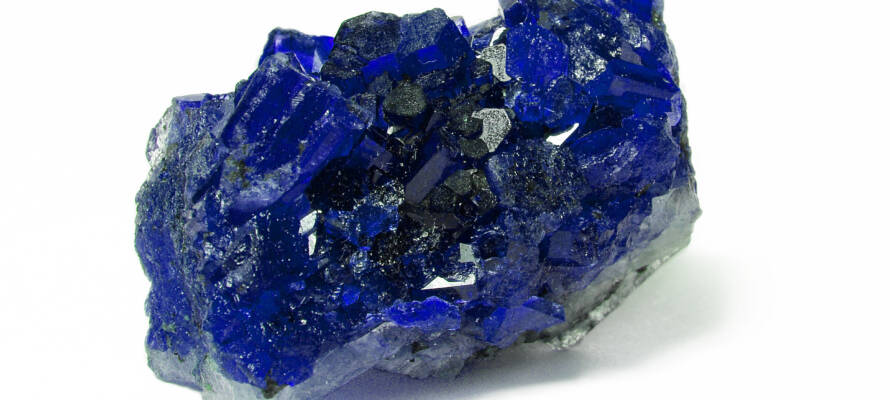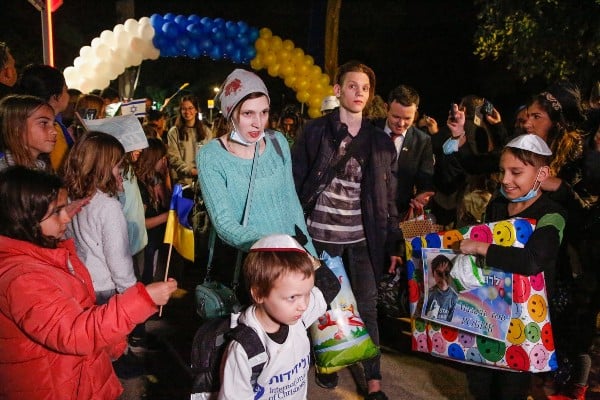Nobody should be a slave or endure unspeakable hardships, but when we suffer, God suffers along with us.
By Rabbi Ari Enkin, Rabbinic Director, United with Israel
This week’s Torah portion is “Mishpatim” (Exodus 21:1-24:18) and in addition to the many different commandments that are given, there is a minor review of the Revelation at Sinai, which we read in last week’s Torah portion. We are told that Moses, Aaron and his sons, and the elders, ascended the mountain and beheld God’s presence in the form of “livnat hasapir” (24:10), which, can be translated as “white sapphire.”
The Midrash, however, offers an alternative translation (even more accurate in some ways!) of “a sapphire brick.” And why was that the sight awaiting for them up on Sinai? So that they should know that this brick was before God since the time the Jews were enslaved in Egypt and forced to make bricks,symbolizing that even in our suffering God was with us and felt our pain.
On that note, there is a somewhat familiar story regarding the bricks. The sages tell us that there was a Jewish woman named Rachel who was forced to tread on mud for the bricks. The Egyptian taskmasters did not allow her to take a break even while she was pregnant and she was even forced to deliver her baby in the mud pits that she was working in. The baby was born and fell into the mud and then crushed to death by all the treading in the mud pits. The baby’s body then become content for the bricks. (The reason I called this story “somewhat familiar” is because the Charlton Heston movie, “The Ten Commandments,” contains a scene which was inspired by this Midrashic teaching.)
Rachel, of course, cried in horror as this was taking place. We are told that Rachel’s cries reached the heavens and the angel Michael descended and brought one such brick before God, for Him to see the brutality to which the Jews were being treated. Another interpretation and translation of the word “hasapir” could be “shefir” meaning “afterbirth” referring to the bricks being composed of the bodies of dead children. It was this brick that Moses, Aaron and his sons, and the elders saw when they were on the top of Mt.Sinai. This brick remained alongside God’s throne so that He would always be reminded of the suffering of the Jewish people.
However, there is an even deeper meaning and lesson to this brick which was the heavenly symbol of the suffering of the Jewish people. There are all kinds of things that one can accomplish in this world, and for the most part, all positive accomplishments are good. You can make your parents proud with your accomplishments, you can make your spouse proud, you can make many people proud. Even God.
But the type of accomplishment that God keeps beside His throne are the “bricks” – accomplishments that forced us to go through all kinds of tests and challenges: accomplishments that forced us to make sacrifices, took us out of our comfort zone, and made us stronger people. These are the “bricks” that impress God more than the others.
Nobody should be a slave or endure the unspeakable hardships that Pharaoh and other tyrants in history have put us through. However, take some comfort in knowing that when we suffer, God suffers along with us. Our brick is His brick.
For more insights by Rabbi Enkin on this week’s Torah portion, click on the links below.
What Can We Learn From the Bible’s Famous Converts?
Medicine: A Partnership Between God and Man
Not Everything in the Torah Should be Taken Literally
Doing the Right Thing is a Full-Time Job
We All Need Our Ears Pierced Sometimes
Bring Purim Joy to Israeli Victims of War and Terror
Join us in providing Israeli victims of war and terror with much needed comfort, blessing and holiday joy.
Families have been destroyed by the horrific Hamas massacre of October 7th and ongoing terror and rockets attacks. There are so many orphans that need our love, compassion and support!
Brighten their Purim holiday by sending Purim food baskets, yummy treats, personal notes and toys for the children.
CLICK HERE TO SEND YOUR PURIM GIFT & PERSONAL NOTE TO THE VICTIMS




